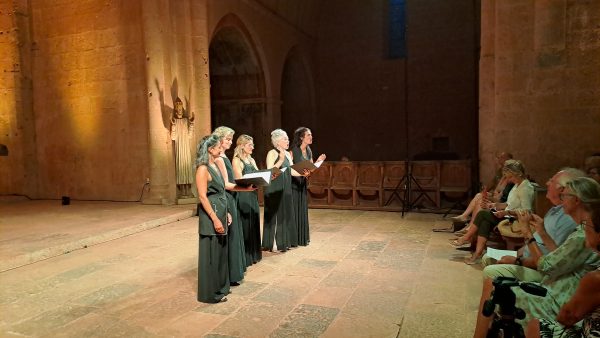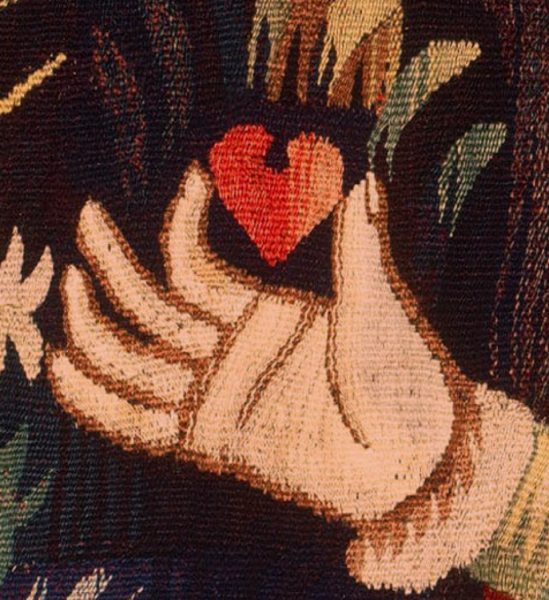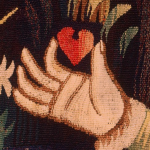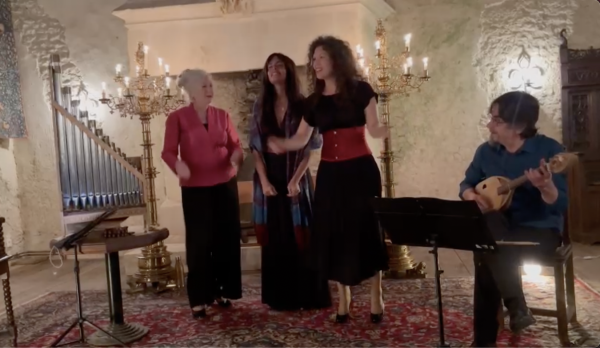
Prima Vox
Program for 5 female voices and organetto
Medieval music, including excerpts from Symphoniae Harmoniae Celestium Revelationum, the Riesen Codex, works by Hildegard von Bingen (1098–1179), selections from Codex IX de Las Huelgas, and anonymous pieces compiled in the early fourteenth century.
This program carries the echo of women’s voices, singing and praying within two renowned monasteries: Disibodenberg in Germany in the twelfth century and Las Huelgas in Spain during the thirteenth and fourteenth centuries.
Through five female voices, shifting between the monody of Hildegard and the polyphony of the Las Huelgas manuscript, it explores the question of the sacred and of feminine devotion. These works seek to awaken within us the original voice, prima vox per quam omnes creati sumus, the first voice by which we were created, like a cry thrown toward the heavens, toward that voice of beginnings. It reconnects with what is most ancient in humanity, liberates those who sing or listen, and opens vast inner spaces.
Many believe that singing was forbidden to women within the religious sphere, yet it seems it was, if not entirely permitted, at least tolerated within convent walls. The musical manuscripts of Riesen, Fontevraud and Las Huelgas, among the most celebrated, bear witness to this practice, as they originate from female foundations. Moreover, if so many sources repeatedly issued prohibitions against women’s singing, it must mean that they sang, for why forbid what did not exist?


